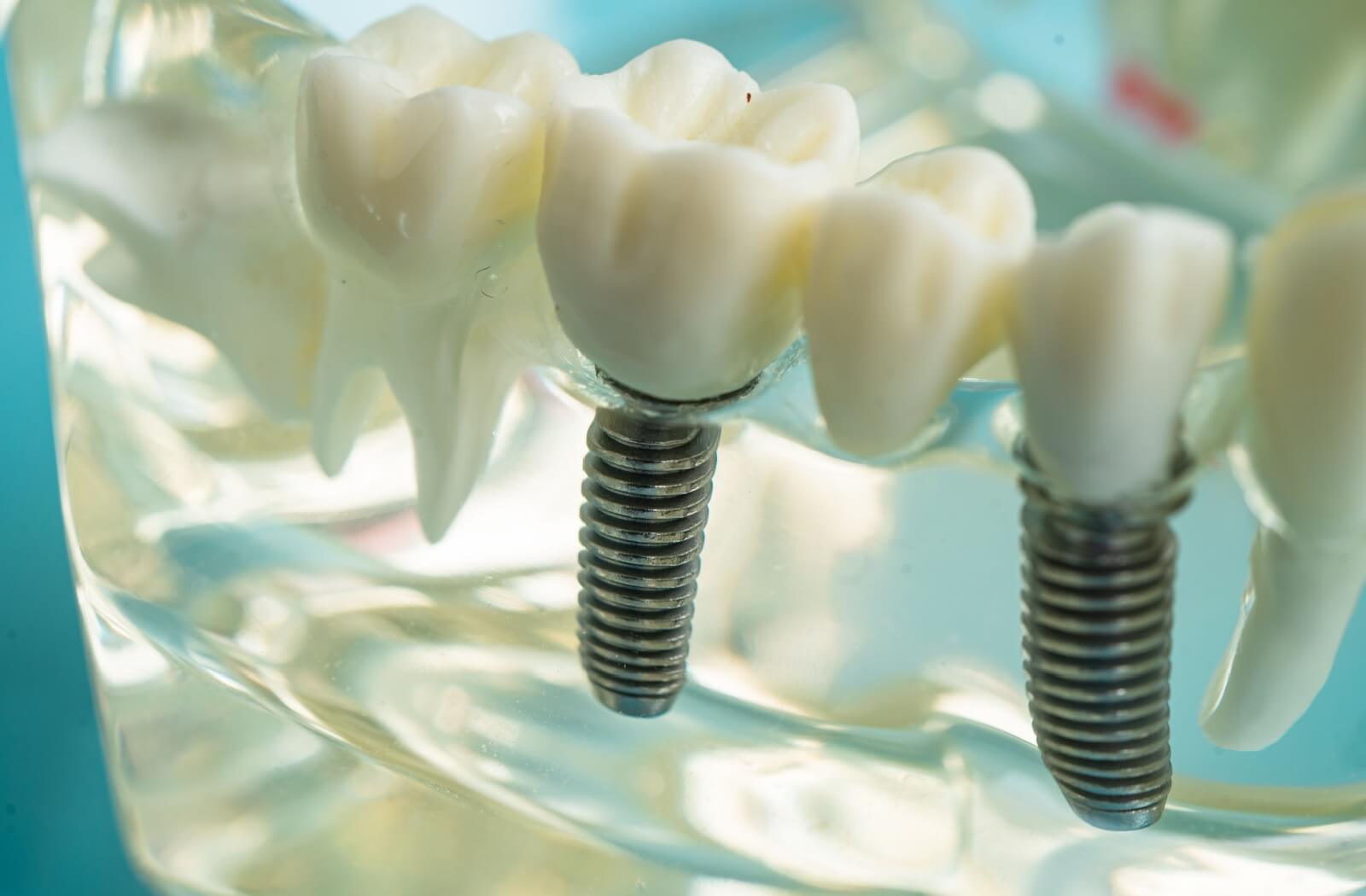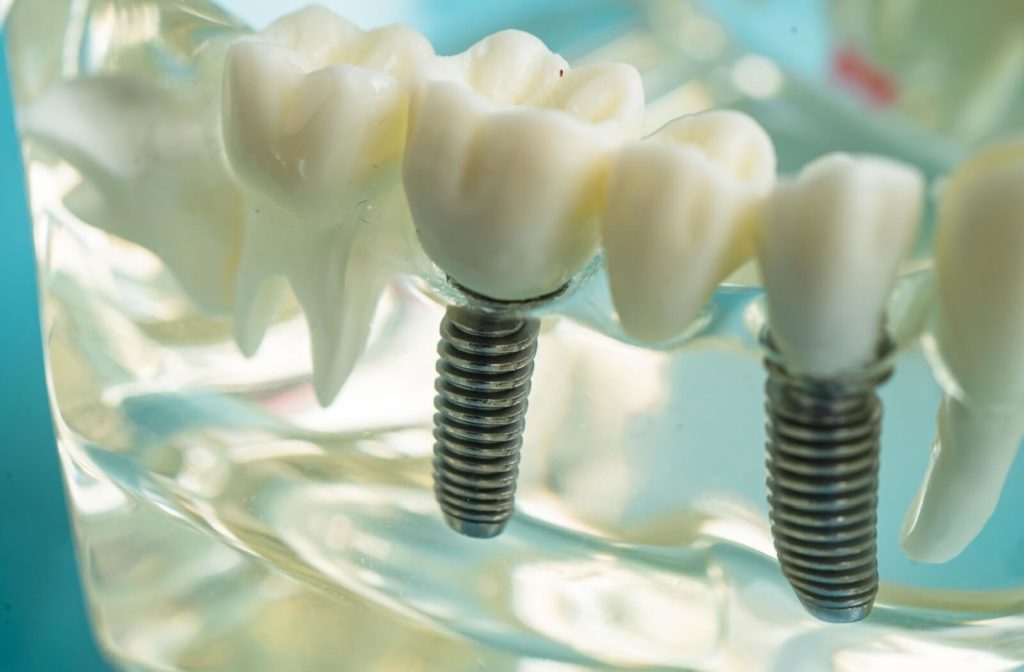Dental implants are a popular and effective solution for tooth replacement, designed to closely mimic the look and function of natural teeth.
These implants are anchored into the jawbone, providing stability and preventing bone loss that can occur with missing teeth. However, they often come with a hefty price tag that can be a significant barrier for many.
In Canada, the cost of dental implants can range from several thousand dollars to even higher, depending on the complexity of the procedure and any additional treatments required.
As a result, many Canadians find themselves wondering how to lighten the financial load by exploring options to get their dental implants covered by insurance.
This can involve understanding what their dental insurance plans cover, researching potential government assistance programs, or even discussing financing options with their dental care providers to make this necessary treatment more accessible.
Are Dental Implants Covered by Insurance?
The first question many people have is whether their insurance will cover dental implants at all. Sadly, the answer isn’t always straightforward.
Coverage depends on your specific insurance plan, the medical necessity of the procedure, and how well you can navigate the insurance process.
Review Your Current Insurance Policy
Start by thoroughly reviewing your existing insurance policy. Look for terms like “major restorative services” or “oral surgery” to see if dental implants are mentioned.
Policies vary, so it’s important to know what your plan covers. If you’re unsure, call your insurance company and ask directly.
Talk to Your Dentist About Medical Necessity
Insurance companies are more likely to cover procedures deemed medically necessary. Have a conversation with your dentist about why dental implants are essential for your oral health.
Conditions like severe gum disease, traumatic injury, or congenital defects may increase the likelihood of coverage.
Get a Pre-Authorization from Your Insurance Company
Once you’ve established the medical necessity of the implants, request a pre-authorization from your insurance company.
This formal review will give you a clearer picture of what costs will be covered, allowing you to plan better financially.
Health vs. Dental Insurance – What’s the Difference?
Understanding the difference between health and dental insurance can help you maximize your benefits. While both types of coverage can potentially help with dental implants, they operate under different rules and conditions.
When Health Insurance May Cover Implants
In some cases, health insurance may cover dental implants, especially if the procedure is part of a broader medical necessity.
For example, implants might be covered if they are needed due to an accident or a medical condition like oral cancer.
How Dental Insurance Handles Implant Costs
Dental insurance typically covers a percentage of the total cost, subject to annual maximums and specific policy limitations.
Some plans may only cover basic procedures like extractions, while others might extend to more complex treatments like implants.
Maximizing Your Insurance Benefits

Even if your insurance covers part of the expense, understanding how to maximize your benefits can save you a lot of money.
Using Annual Maximums & Waiting Periods
Many dental insurance plans have annual maximums – the total amount they will pay out in a year.
Plan your procedures accordingly to make the most of your benefits. Keep an eye out for waiting periods as well, which might delay your ability to get coverage.
Combining Health Savings Accounts (HSAs) or Flexible Spending Accounts (FSAs)
Consider combining your insurance benefits with Health Savings Accounts (HSAs) or Flexible Spending Accounts (FSAs).
These accounts allow you to set aside pre-tax dollars for medical expenses, including dental implants, making them a smart way to manage costs.
Alternative Financing Options for Dental Implants
If insurance doesn’t cover enough of the cost, or if you’re looking to minimize out-of-pocket expenses, several alternative financing options can help.
Payment Plans & Third-Party Financing
Many dental offices offer payment plans to spread out the cost of implants over several months.
Additionally, third-party financing companies specialize in medical and dental loans, offering competitive interest rates and flexible terms.
Tips for Navigating Insurance for Implants
Navigating the complexities of insurance can be daunting, but with the right approach, you can maximize your benefits and minimize out-of-pocket costs.
How to Appeal Denied Claims
If your initial claim is denied, don’t give up. Many insurance companies have an appeal process.
Gather additional documentation from your dentist to support the medical necessity of the procedure and submit a detailed appeal.
Working with Your Dentist to Maximize Coverage
Build a strong relationship with your dentist and their administrative staff. They can often provide valuable insights and assistance in dealing with insurance companies, ensuring you get the maximum possible coverage.
Achieving Affordable Dental Implants with the Right Approach
Securing dental implant coverage requires careful planning, understanding your insurance policy, and leveraging various financing options.
By taking these steps, you can significantly reduce the financial burden and pave the way for a healthier, happier smile.
For more personalized advice and to explore your options, don’t hesitate to book an appointment with our Heritage Pointe Dental.


